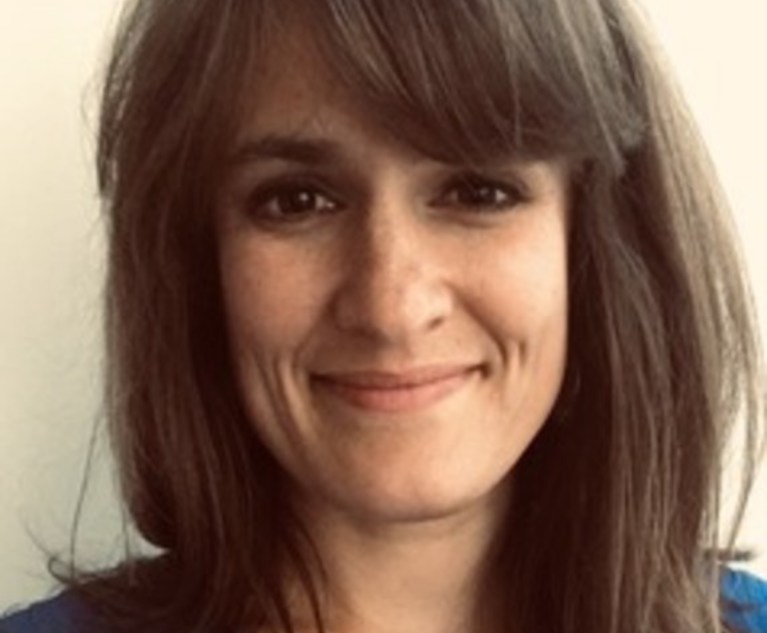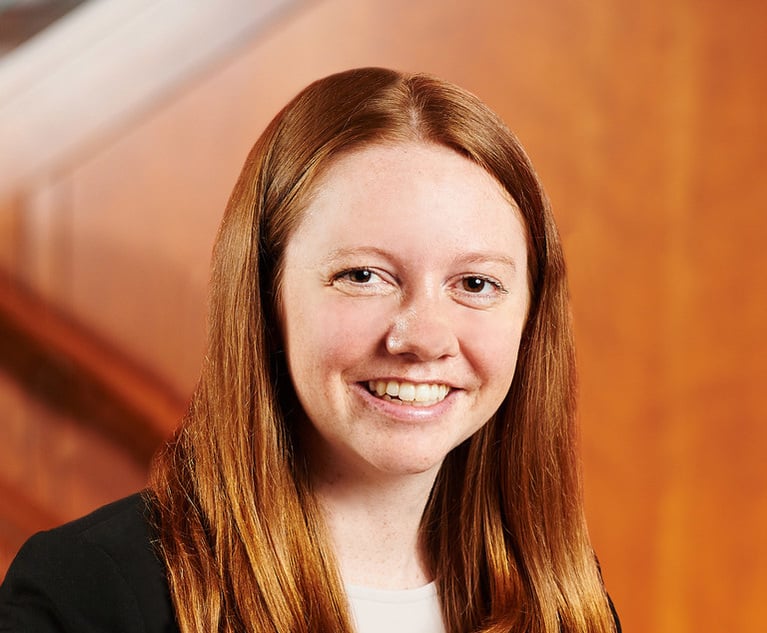Litigation Is Not the Way to Change the Educational System
The benefit of the lawsuit goes only to the children who are the subject of the lawsuits and not to the broader student population.
July 01, 2022 at 11:31 AM
8 minute read
 Heather Hulit, Berney & Sang
Heather Hulit, Berney & Sang
Introduction
Lyndon Johnson told us that education "offers an escape from poverty." Nelson Mandela said it is the "most powerful weapon you can use to change the world." And the eminent educator, Horace Mann asserted that education is the "great equalizer" of the human condition. You may have noticed that in all the campaign flyers you have received that most feature the candidate in the classroom or reading to a child and include bullet points on how important education is to combat all sorts of social evils, from poverty to gun violence. And it's true—education is a powerful weapon. Education can serve as the gateway to the American dream while a lack of educational opportunity statistically leads to poverty and involvement with the criminal justice system. A 2016 study, for example, found that high school dropouts are four times more likely to be arrested, become dependent on government assistance and use drugs.
Lawsuits as the Costs of Doing Business
Like many civil rights lawyers, attorneys who enter the field of special education do so inspired by the likes of Thurgood Marshall, who was, among other things, aiming to force change in an inequitable and unfair educational system through litigation. But, as any seasoned civil rights attorney will tell you, whether its special education, Title IX claims, or police brutality, civil rights lawsuits do not often spur the system change we seek. Each plaintiff is made whole with a settlement that is very good for the individual plaintiff with little to no impact on the system. It is as if the lawsuits are just the "costs of doing business" and the system—be it a police department or a school district—largely keeps on operating the same way they did before the suit.
In the case of schools, they spend hundreds of thousands of dollars each year on litigation—on compensatory education, educational trust funds, private school tuition, plaintiffs attorney fees and defense costs. The benefit of the lawsuit goes only to the children who are the subject of the lawsuits and not to the broader student population. In fact, for many of my clients who remain in the same school setting after their lawsuit, the district continues to violate the student's rights so that the student has a legal claim each new school year over essentially the same violations. The civil rights practice in special education is largely unable to change the system; at best it helps the lucky few whose parents were fortunate enough to find and afford an attorney. This leads to two perverse outcomes.
This content has been archived. It is available through our partners, LexisNexis® and Bloomberg Law.
To view this content, please continue to their sites.
Not a Lexis Subscriber?
Subscribe Now
Not a Bloomberg Law Subscriber?
Subscribe Now
NOT FOR REPRINT
© 2025 ALM Global, LLC, All Rights Reserved. Request academic re-use from www.copyright.com. All other uses, submit a request to [email protected]. For more information visit Asset & Logo Licensing.
You Might Like
View All
State-Sanctioned Discrimination: Title IX’s Expansive Loophole for Religious Institutions
8 minute read
From 'Confusing Labyrinth' to Speeding 'Roller Coaster': Uncertainty Reigns in Title IX as Litigators Await Second Trump Admin
6 minute read
'What Is Certain Is Uncertainty': Patchwork Title IX Rules Face Expected Changes in Second Trump Administration
5 minute readTrending Stories
- 1Law Firms Expand Scope of Immigration Expertise, Amid Blitz of Trump Orders
- 2Latest Boutique Combination in Florida Continues Am Law 200 Merger Activity
- 3Sarno da Costa D’Aniello Maceri LLC Announces Addition of New Office in Eatontown, NJ, and Named Partner
- 4Friday Newspaper
- 5Public Notices/Calendars
Who Got The Work
J. Brugh Lower of Gibbons has entered an appearance for industrial equipment supplier Devco Corporation in a pending trademark infringement lawsuit. The suit, accusing the defendant of selling knock-off Graco products, was filed Dec. 18 in New Jersey District Court by Rivkin Radler on behalf of Graco Inc. and Graco Minnesota. The case, assigned to U.S. District Judge Zahid N. Quraishi, is 3:24-cv-11294, Graco Inc. et al v. Devco Corporation.
Who Got The Work
Rebecca Maller-Stein and Kent A. Yalowitz of Arnold & Porter Kaye Scholer have entered their appearances for Hanaco Venture Capital and its executives, Lior Prosor and David Frankel, in a pending securities lawsuit. The action, filed on Dec. 24 in New York Southern District Court by Zell, Aron & Co. on behalf of Goldeneye Advisors, accuses the defendants of negligently and fraudulently managing the plaintiff's $1 million investment. The case, assigned to U.S. District Judge Vernon S. Broderick, is 1:24-cv-09918, Goldeneye Advisors, LLC v. Hanaco Venture Capital, Ltd. et al.
Who Got The Work
Attorneys from A&O Shearman has stepped in as defense counsel for Toronto-Dominion Bank and other defendants in a pending securities class action. The suit, filed Dec. 11 in New York Southern District Court by Bleichmar Fonti & Auld, accuses the defendants of concealing the bank's 'pervasive' deficiencies in regards to its compliance with the Bank Secrecy Act and the quality of its anti-money laundering controls. The case, assigned to U.S. District Judge Arun Subramanian, is 1:24-cv-09445, Gonzalez v. The Toronto-Dominion Bank et al.
Who Got The Work
Crown Castle International, a Pennsylvania company providing shared communications infrastructure, has turned to Luke D. Wolf of Gordon Rees Scully Mansukhani to fend off a pending breach-of-contract lawsuit. The court action, filed Nov. 25 in Michigan Eastern District Court by Hooper Hathaway PC on behalf of The Town Residences LLC, accuses Crown Castle of failing to transfer approximately $30,000 in utility payments from T-Mobile in breach of a roof-top lease and assignment agreement. The case, assigned to U.S. District Judge Susan K. Declercq, is 2:24-cv-13131, The Town Residences LLC v. T-Mobile US, Inc. et al.
Who Got The Work
Wilfred P. Coronato and Daniel M. Schwartz of McCarter & English have stepped in as defense counsel to Electrolux Home Products Inc. in a pending product liability lawsuit. The court action, filed Nov. 26 in New York Eastern District Court by Poulos Lopiccolo PC and Nagel Rice LLP on behalf of David Stern, alleges that the defendant's refrigerators’ drawers and shelving repeatedly break and fall apart within months after purchase. The case, assigned to U.S. District Judge Joan M. Azrack, is 2:24-cv-08204, Stern v. Electrolux Home Products, Inc.
Featured Firms
Law Offices of Gary Martin Hays & Associates, P.C.
(470) 294-1674
Law Offices of Mark E. Salomone
(857) 444-6468
Smith & Hassler
(713) 739-1250






